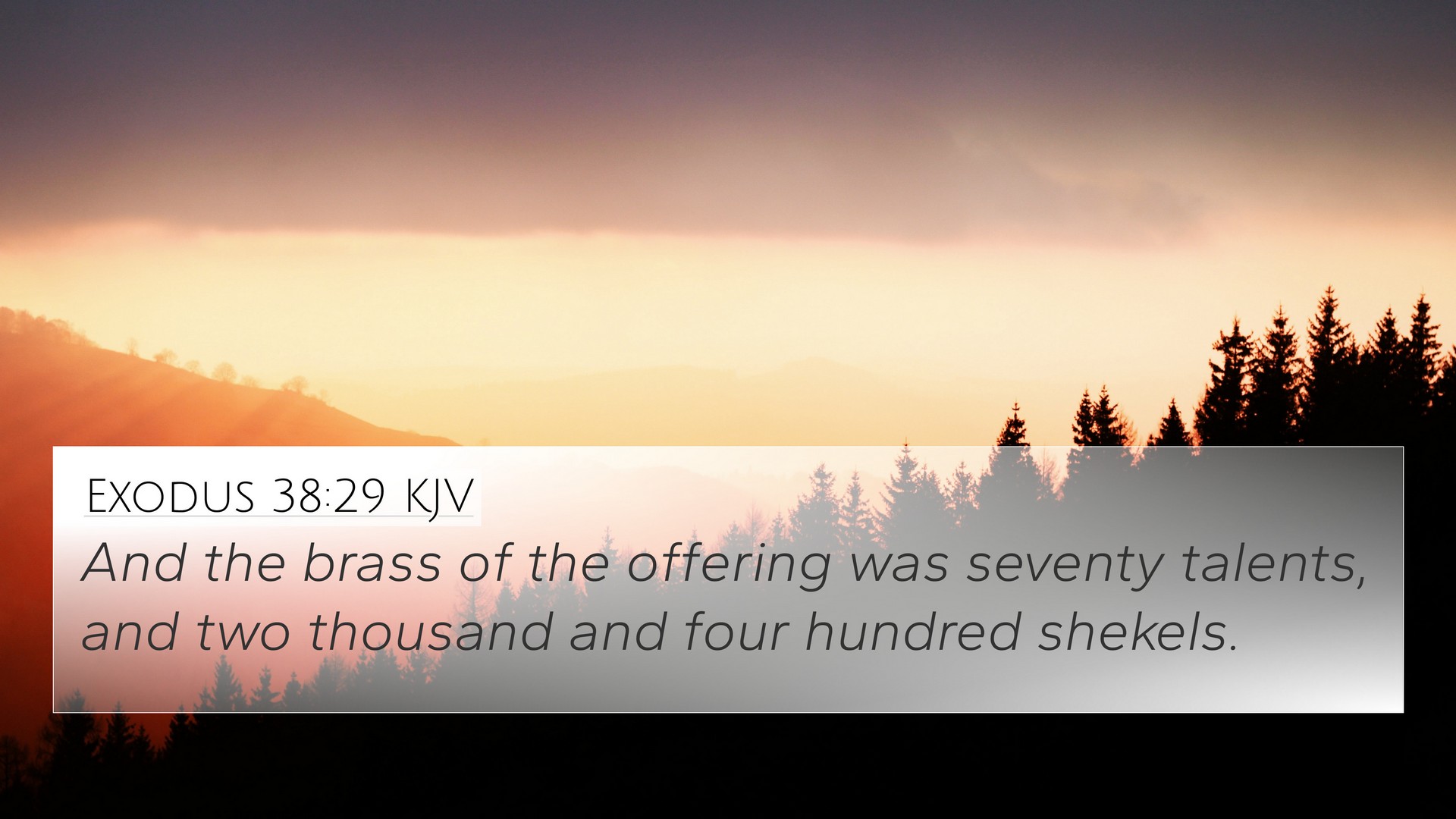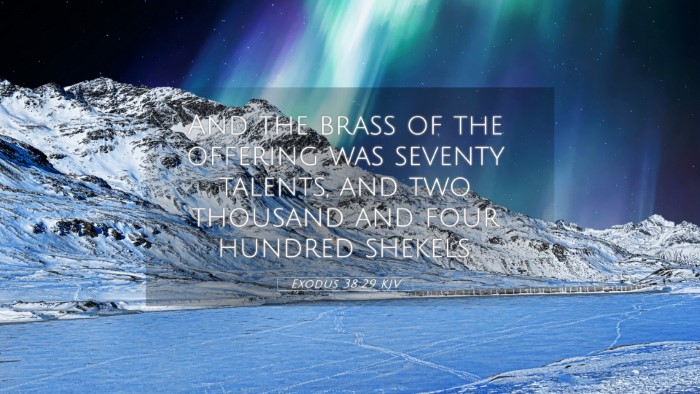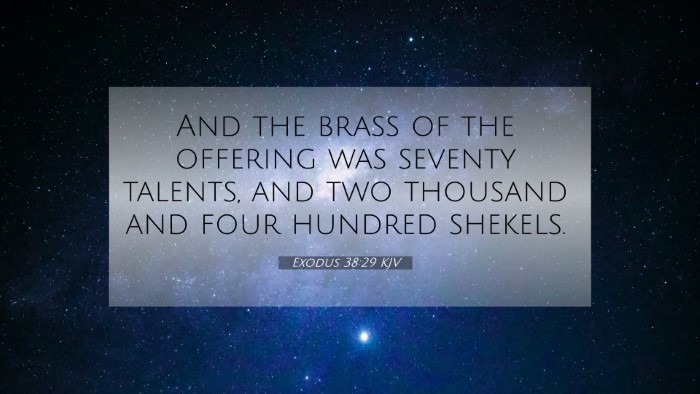Understanding Exodus 38:29
Exodus 38:29 states: "And the silver of them that were numbered of the congregation was a hundred talents, and a thousand seven hundred and seventy-five shekels, after the shekel of the sanctuary."
Summary of Exodus 38:29
This verse highlights the collection of silver from the Israelites, emphasizing the significance of these contributions towards the construction of the Tabernacle and its furnishings. The specific measurements indicate the wealth and willingness of the people to contribute to God's work.
Commentary Insights
-
Matthew Henry:
Henry comments on the importance of these offerings, suggesting that they reflect the people's devotion and the acknowledgment of God's past deliverance. He notes that their willingness to give indicates a heart devoted to the service of God.
-
Albert Barnes:
Barnes emphasizes the calculated nature of the contributions, stating that the exact mention of weights and measures serves to underscore the seriousness of their offerings. He suggests that the silver collected was used for the purpose of holy work, enhancing its sacred value.
-
Adam Clarke:
Clarke provides insights into the significance of the silver and how it was used in the construction of the brazen altar and other sacred items. He reinforces that the offerings stemmed from God’s provision, reflecting the communal effort in worship.
Bible Verse Cross-References
Exodus 38:29 can be linked to several other scripture passages that enhance understanding and provide a broader context:
- Exodus 25:1-2 - God's command for offerings to be taken from the people.
- Leviticus 27:16 - Discussing the valuation of items devoted to the Lord.
- 1 Chronicles 29:3 - David’s donation for the temple, showcasing a similar spirit of giving.
- Matthew 6:21 - Where your treasure is, there your heart will be also, linking material offerings to spiritual devotion.
- 2 Corinthians 9:7 - Emphasizing that gifts should be given willingly and joyfully, aligning with the attitude of the Israelites.
- Hebrews 9:12 - Discusses Christ’s offering, providing a connection between the Tabernacle's purpose and the ultimate sacrifice.
- Revelation 21:18 - Imagery of the foundations of the new Jerusalem, tying past sacrifices to future glory.
- Philippians 4:18 - Paul speaks of the gifts received in service, paralleling the communal offerings of the Israelites.
- Exodus 30:13-15 - The half shekel contribution as a command for temple service aligns closely with the worship outlined in Exodus 38.
- Matthew 5:16 - Let your light shine before others, connecting acts of service like giving to the worship of God.
Connections Between Bible Verses
The act of contributing materials for the Temple parallels many scriptures throughout the Bible that discuss the themes of thanksgiving and sacrifice:
- Connections between offerings in the Old Testament and the sacrificial system are vital for understanding the narrative of God's covenant with His people.
- The New Testament reflects these principles, reinforcing that giving is an act of worship rather than mere obligation.
- Establishing links between these verses provides insight into the overarching themes of God's provision, human stewardship, and community involvement in worship.
- Thematic connections highlight the continuity of God's agenda throughout scriptures, guiding believers today in their understanding of worship and sacrifice.
Thematic Bible Verse Connections
Exodus 38:29 serves as a foundational verse for understanding the importance of contributions in the worship process. Other themes that emerge from this passage include:
- Community Worship: The collective participation in offerings speaks to the unity of purpose among the Israelites.
- Divine Provision: Recognizing that all that is given comes from God's blessings in the first place.
- Faithful Stewardship: The manner of giving reflects an understanding of responsibilities attached to their relationship with God.
- Preparation for Worship: Illustrating that material contributions precede spiritual activities.
- God's Holiness: Understanding that the items sanctified were for sacred use, reinforcing the reverence owed to God.
Scriptural Cross-Referencing
To effectively study the Bible, engaging in cross-referencing can reveal deeper insights:
- Tools for Bible cross-referencing such as concordances can assist in identifying related verses.
- The Bible cross-reference system provides a framework for understanding how different books relate to one another.
- Using comprehensive Bible cross-reference materials can aid in sermon preparation and theological studies.
- Cross-reference Bible studies make it easier to draw connections that can deepen one's faith and knowledge.
- Learning how to use Bible cross-references can enhance personal study or communal discussions.
Conclusion
Exodus 38:29 provides a profound insight into the early practices of worship and offering. Understanding this verse within its broader scriptural context highlights its significance in both historical and contemporary Christian faith. Engaging with cross-references allows for a fuller appreciation of the interconnectedness of God's word and the overarching narrative of redemption.


